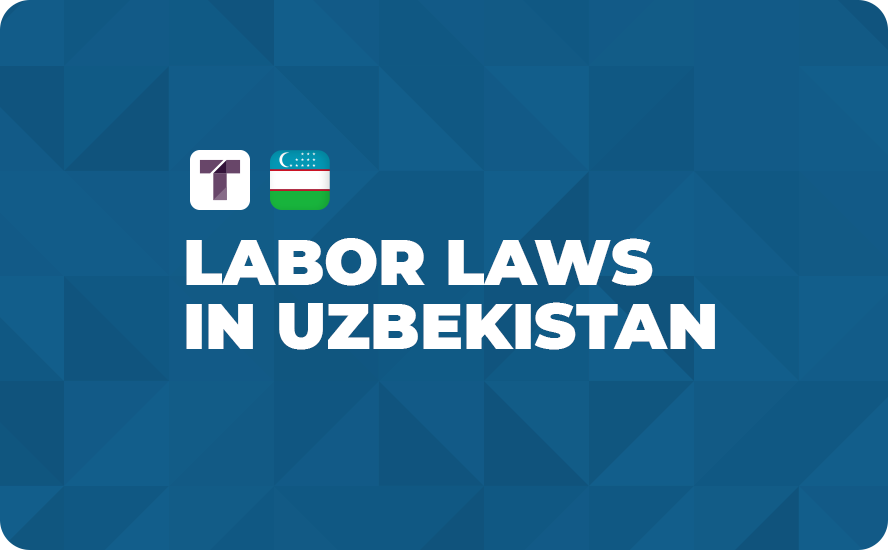Uzbekistan, with its rich history, strategic location, and developing economy, presents unique opportunities for businesses seeking expansion in Central Asia. As you consider building a team in Uzbekistan, a solid grasp of the country’s labor laws will be essential for smooth and compliant operations. These laws govern the rights of workers, the responsibilities of employers, and the overall framework for employment relationships.
This blog post delves into crucial aspects of Uzbekistan’s labor laws and how they may impact your business ventures in this exciting market.
A Guide for Growing Your Team in Uzbekistan

The cornerstone of labor legislation in Uzbekistan is its Labor Code. This document provides a comprehensive framework covering employment contracts, working conditions, compensation, leave entitlements, termination procedures, and more. Familiarizing yourself with the Labor Code is a must for any organization operating in Uzbekistan. Notably, employment relationships in Uzbekistan must be formalized through written contracts. These contracts clearly outline job responsibilities, working hours, salary, benefits, termination provisions, and other key terms of the agreement.
Hiring Practices in Uzbekistan
When hiring foreign nationals in Uzbekistan, it’s important to navigate the work permit process. Foreign employees must secure a work permit before starting their employment, and employers often play a crucial role in facilitating the application. Employers may establish probationary periods for new employees, with a typical duration of three months. During this period, employment can be terminated with shorter notice if performance isn’t satisfactory. Importantly, Uzbekistan’s labor law prohibits discrimination on grounds such as race, ethnicity, gender, religion, age, disability, or political views.
Read More: Average Salary in Uzbekistan
Work Hours, Overtime, and Leave
The standard workweek in Uzbekistan consists of 40 hours, usually spread over five days (Monday to Friday). Overtime work is permitted but must be compensated at a higher rate according to guidelines set in the Labor Code. Uzbekistan’s employees are entitled to a minimum of 15 working days of paid annual leave. Leave entitlements may increase based on factors like job tenure and working conditions. Beyond annual leave, employees may have access to various other leave types, such as maternity, parental, sick, and educational leave.
Compensation and Benefits
Uzbekistan has an established national minimum wage that is reviewed and adjusted periodically. Ensuring compliance with this minimum wage threshold is mandatory for all employers. Wages must be paid at least twice a month. Offering competitive benefits packages, including bonuses and other incentives, is a common practice for attracting and retaining skilled workers in Uzbekistan.
Termination of Employment
Uzbekistan’s Labor Code defines specific grounds and procedures for employment termination. Termination may occur by mutual agreement between the employer and employee. Employees also have the right to resign with appropriate notice as per their employment contract. Employers may initiate termination under specific circumstances, such as restructuring, unsatisfactory performance, or misconduct. Strict adherence to procedural rules is required, and severance pay may be applicable in certain termination scenarios.
The Benefits of an Employer of Record (EOR)
Navigating the nuances of Uzbekistan’s labor laws, handling payroll, and managing local HR practices can prove complex for businesses expanding into this market. Partnering with an Employer of Record (EOR), like Truss, can be invaluable. An experienced EOR handles regulatory compliance, ensures payroll accuracy and timely disbursement, and provides ongoing HR support customized to Uzbekistan.
Employer of Record VS Staffing Agency
Unlocking Uzbekistan’s Potential
Uzbekistan holds significant potential for businesses with its skilled workforce and growth-oriented economy. By understanding the fundamentals of labor laws and collaborating with the right partners, you can confidently establish a successful and compliant presence in this dynamic Central Asian nation.

